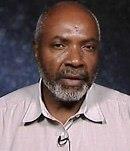Hypocrisy of Washington, Tel Aviv Being Exposed on A Daily Basis

What follows is the full text of the interview.
Q: The idea of Islamic civilization-making for the Islamic Awakening movements in the region in order to confront Western liberalistic models is among Ayatollah Khamenei’s intellectual innovations. What do you think about the idea?
A: It is an ideal that many aspire to in the region and around the world. The model established by the Islamic Republic of Iran over the last 34 years can serve as the basis of such a renewed civilization. Iran is both true to its Islamic orientation as well as highly engaged with the peoples and governments of various geo-political regions throughout the world.
Q: How do you evaluate resistance against US and European domination and confronting the Zionist regime in the statements and views of Ayatollah Khamenei?
A: The Iranian leadership has not wavered at all in regard to support for the Palestinian cause and the plight of Muslims both inside the Middle East and around the world. Iran continues to take a principled stand in defense of the Palestinians and Muslims throughout the globe. Iran has called for a nuclear free region, a stance which the United States or Israel cannot advocate. The hypocrisy of Washington and Tel Aviv are being exposed on a daily basis.
Q: In Ayatollah Khamenei’s view, leadership and structure-making for the regional uprisings is an effective way for forming a resistance and a protection against threats. What are your thoughts on that? What do think are the main reasons behind the failure of some the revolutions in the region?
A: The issue of lack of organizational leadership and structure has been a major impediment to the Islamic Awakenings and other uprisings throughout North Africa and the Middle East. Also many of the movements that have taken the leadership of the emerging forces in Egypt, Tunisia, Yemen, Bahrain, etc., have met enormous resistance from the state backed up by the United States, NATO and Israel. It is often difficult to maintain the struggle and its ideological underpinnings under these circumstances.
Q: In the Leader’s opinion, spread of divisions among revolutionaries and foreign infiltration are among the main causes that do serious harm to regional revolutions. How can they be avoided, especially considering what we are witnessing in Egypt?
A: This is a major question for all revolutionary movements. Even outside of the Middle East and Africa, in Europe, there have been millions of workers, students and pensioners in the streets through general strikes, marches and even rebellions but the imposition of austerity has still not abated. These are profound lessons for the popular movements and people need to consider them in the current period. One lesson of the Iranian Revolution of 1979 was the question of the seizure and maintenance of power. People should study the Iranian Revolution for these specific purposes.
Q: The Leader of the Islamic Revolution considers understanding among Islamic schools of thought as the key to salvation. What strategies could be adopted now to douse the flames of sectarian conflicts spread in the region by Takfiris?
A: There needs to be consistent dialogue among Muslims from various trends as well as discussions and cooperation between all religions. Most adherents to these faiths embody similar aspirations as their counterparts in other religious communities. A viable Muslim civilization would not only be setting trends for world peace and development but also providing examples for people in other faiths. The intolerance being promoted by certain elements internationally stands outside the historical tradition of Islam. It is being utilized as a rationale for even deeper imperialist interventions in post-colonial states in Africa, the Middle East and the Asia-Pacific regions. In Mali earlier this year, France attempted to justify its invasion and occupation of their former colony by claiming that they were fighting "Islamic extremism." In Somalia, they are also making similar allegations. Nonetheless, there are tremendous natural resources such as oil, gold, natural gas, uranium, strategic waterways, etc., which the NATO countries are seeking to dominate and exploit. These are the factors that underlay much of what the United States and its allies are doing in countries where Muslim populations exist.



